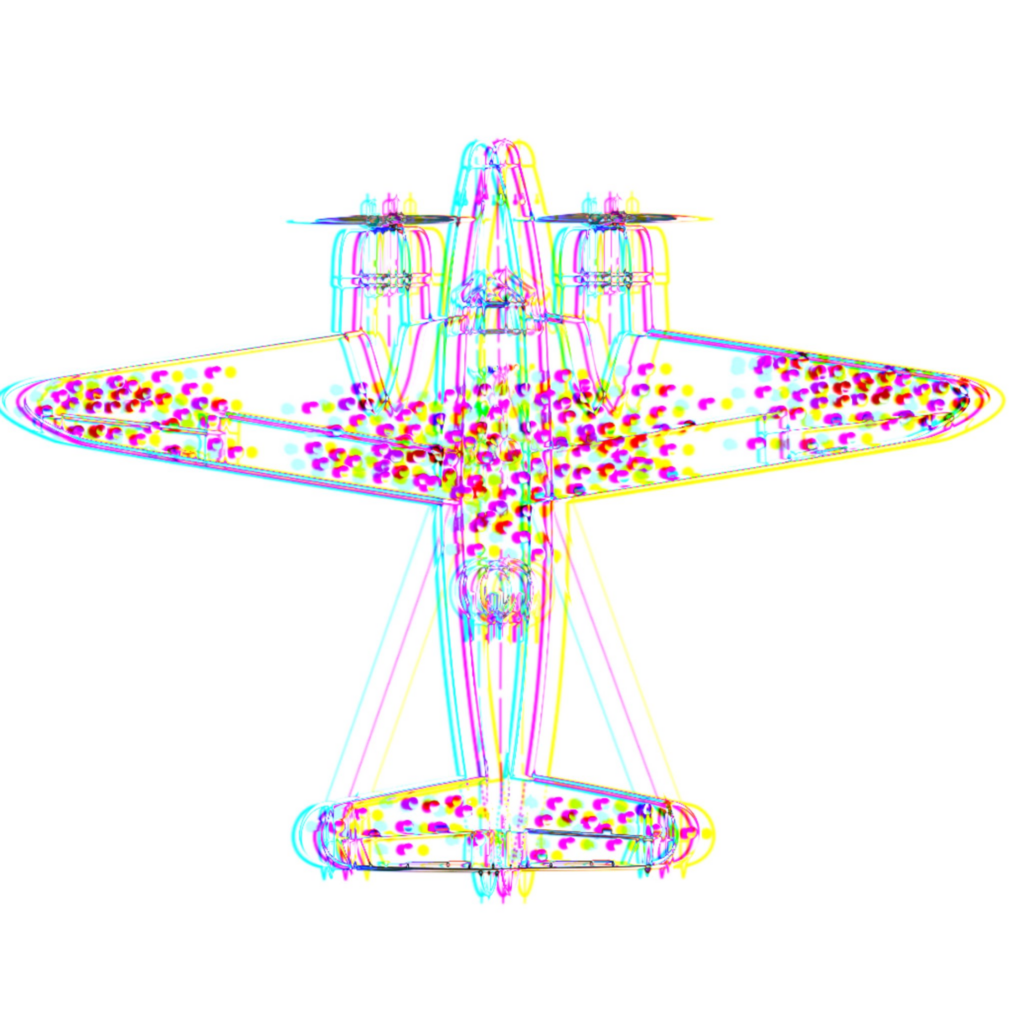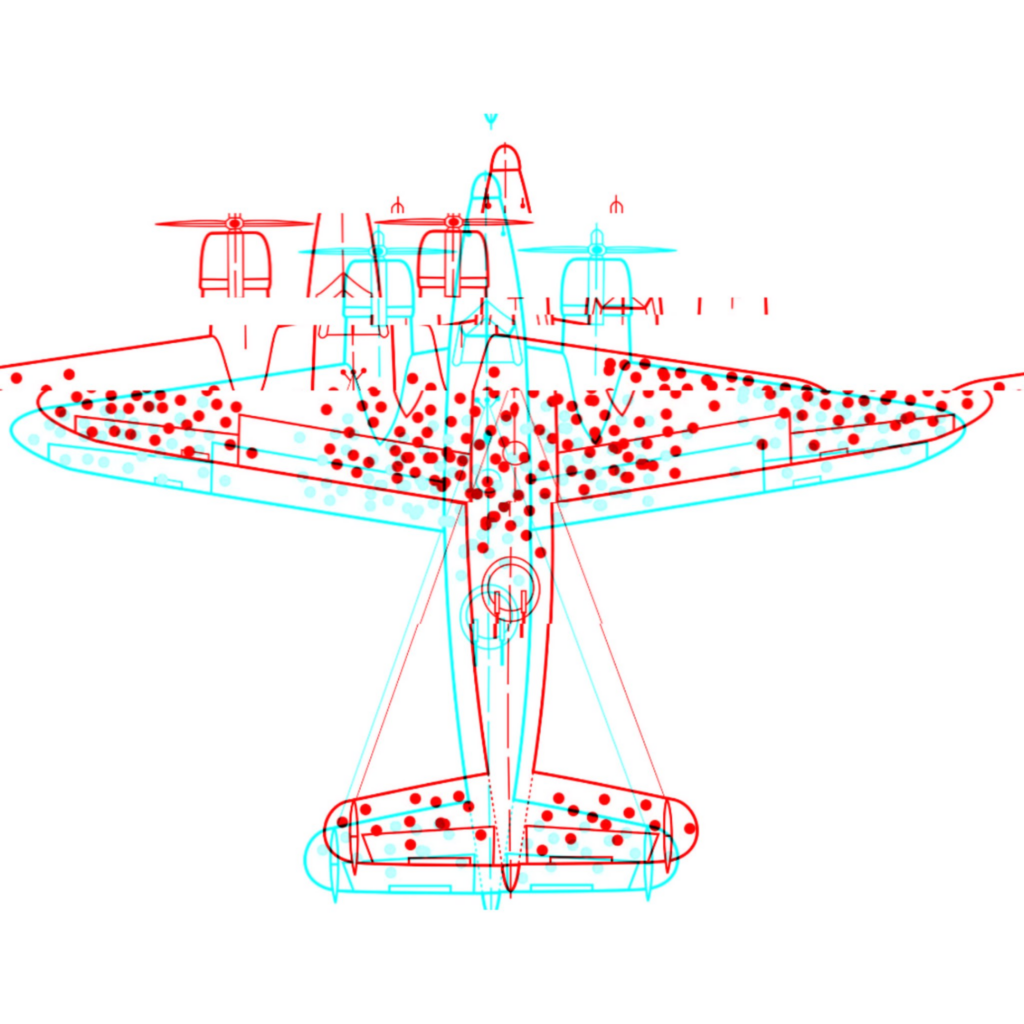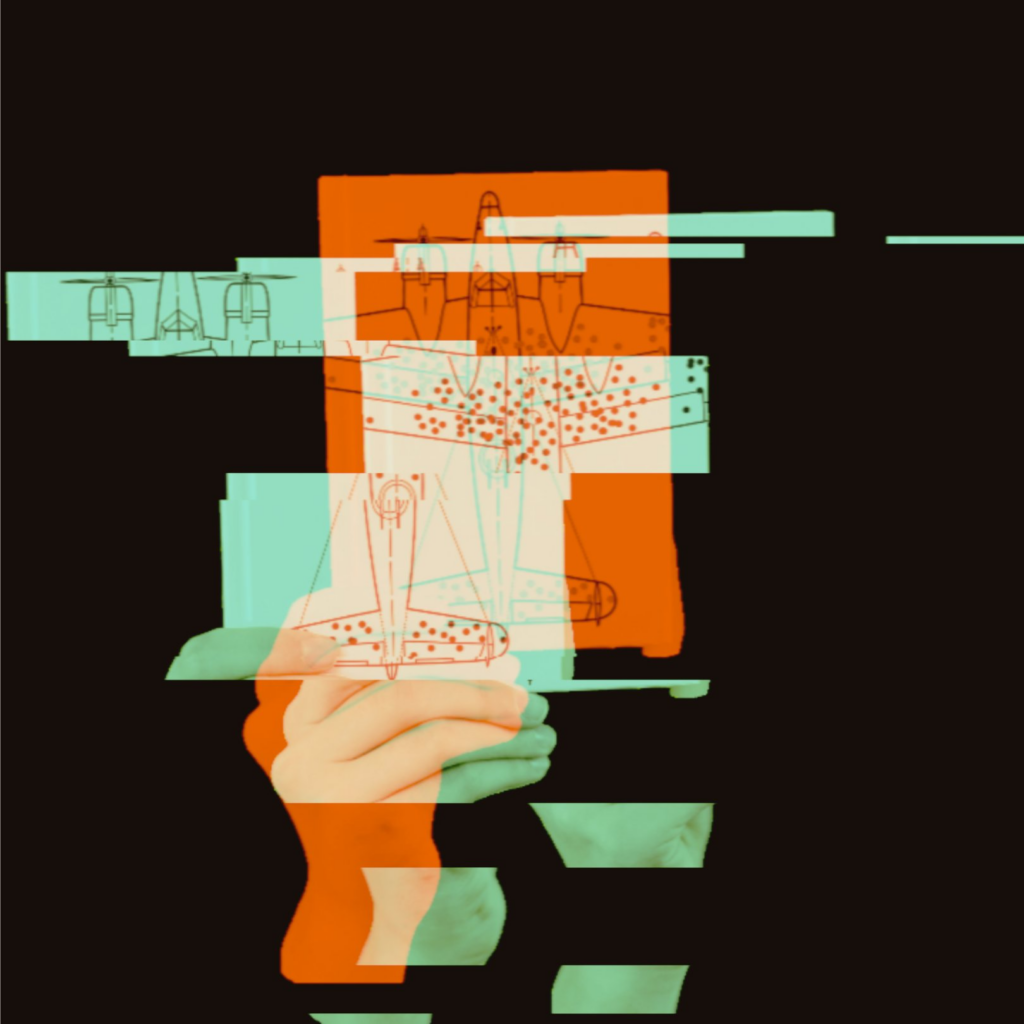
Frankie “The Wrench” Fritsch wasn’t exactly Army material. Sure, he could strip down a Packard in under ten minutes flat, eyes closed, fueled by a cigarette and a lukewarm cup of joe. But ordnance manuals and parade drills? Not his cup of tea. Except, these days, tea was a luxury reserved for officers and their clipped-word pronouncements. Frankie was stuck elbow-deep in motor oil, a wrench gripped in his grease-stained hand, staring at the monstrosity that was a B-17 looming over him, its olive drab paint dull under the Mojave sun.
As Ex-PI, and current grease monkey for the Pan Am Clippers, he squinted through a haze of Lucky Strikes and motor oil at the latest arrival from the Pacific. “The Philippine Clipper,” they were calling it, a majestic name for a bird that looked like it had tangoed with a typhoon and lost. Fabric flapped like a drunkard’s overcoat, and a bad paint joby. A mechanic with a past as checkered as a dive bar tablecloth, Frankie wasn’t new to the unsettling whispers that followed these returning birds of war. Sure, some came back peppered with flak holes and sporting fresh coats of enemy paint, but lately, it was something else. A hollowness, a silence where the usual symphony of engine purr and whirring prop should reside.
Frankie traced a finger along a long, jagged gash on the fuselage. It wasn’t battle damage, that much was certain. This looked more like… a bite mark? Frankie scoffed, the desert heat warping his vision. Yet, a prickle of unease crawled up his spine. This wasn’t the first time. Over the past weeks, a handful of planes had returned with similar, inexplicable damage.
Frankie wasn’t one for heroics or blind patriotism. The war had turned him cynical faster than a dame with a taste for bourbon. But these planes, these silent ghosts, gnawed at him. He started small, talking to other mechanics, pilots with haunted eyes who mumbled about “things out there” beyond the inky vastness. The stories, fragmented and laced with paranoia, spoke of encounters with entities that defied explanation, ships that moved like wraiths and left behind a chilling silence.
His gut, a veteran of more Chinatown brawls than he cared to remember, clenched. Damaged planes were Frankie’s bread and butter, but this one felt different. It reeked of a kind of damage that wasn’t on any mechanic’s checklist. The kind that clung to the fuselage like a bad omen.
The crew disembarked, a haggard bunch with eyes that had seen too much ocean and not enough sky. Their captain, a man named Hollis with a face etched by worry lines deeper than the Mariana Trench, bypassed the usual post-flight pleasantries.
“Fritsch,” Hollis rasped, his voice sandpaper on gravel. “We need you to take a good, long look at this crate. And I mean good. Every inch of it.”
Frankie, ever the pragmatist, shrugged. “Another near miss with a Zero, Captain? Happens to the best of us.”
Hollis’s smile was a graveyard in a tuxedo. “This wasn’t a Zero, Fritsch. This was something else. Something… out there.”
<>
That night, drowning his anxieties in a lukewarm beer at a roadside diner, Frankie overheard a hushed conversation. Two eggheads in rumpled suits, their faces obscured by shadows, spoke of Project Chronos – a government-funded foray into the “uncharted territories” beyond the known sky. Their voices held a manic glint, a desperate hope that sent shivers down Frankie’s spine.
The next morning, Frankie found a single page fluttering beneath his toolbox. It was a blueprint, unlike anything he’d ever seen, filled with indecipherable symbols and diagrams that resembled a child’s feverish dream. A single, stark phrase was scrawled across the top: The Damaged Portions of Returning Planes.
The next few hours were a blur of grease, grime, and hushed conversations. Frankie crawled through the plane like a surgeon searching for a tumor. He found scorched wiring, patches of metal warped beyond recognition, and a strange, oily residue clinging to the undercarriage. It defied any analysis he’d ever encountered. Then there was the writing. Scrawled on the fuselage in a language that looked like a demented alphabet soup, a message that sent shivers down Frankie’s spine. It spoke of things that shouldn’t exist, of geometries beyond human comprehension, and a hunger that could devour the very sky.
Frankie felt a cold dread pool in his gut. These weren’t just machines coming back broken. They were bringing something back with them. Something the boys in suits were either too afraid or too arrogant to acknowledge. Frankie, the ex-gumshoe with a nose for trouble, knew he was in too deep. But for the first time since the war stole his innocence, a flicker of something else ignited within him – a spark of defiance, a need to unravel this twisted yarn before the silence from above became a permanent fixture of their skies. The Damaged Portions of Returning Planes – it was more than just a cryptic note, it was a challenge, a dare. And Frankie “The Flickering Fuse” Fritsch, for all his cynicism, wasn’t one to back down from a challenge.
“Damaged portions,” the fresh-faced Lieutenant chirped, his voice echoing in the cavernous hangar. “We’re seeing a worrying trend, Flickerton. Superficial stuff – gauges flickering, dials spinning. But nothing our engineers can pinpoint.”
Frankie grunted, tracing a finger along the bomber’s fuselage. The aluminum gleamed under the harsh hangar lights, a million tiny scratches whispering stories of flak and near misses. “These birds,” he rasped, his voice sandpaper rough from years of yelling over engine roars, “they see things over there, Lieutenant. Things that mess with the insides, the parts we can’t reach.”
The Lieutenant scoffed. “Superstition, Fritsch. We deal in facts here. Measurable data.”
Frankie snorted. Measurable data couldn’t explain the pilot who swore he saw a spectral Stuka weaving through the bomber stream, nor the radioman who received messages in a language that defied translation. These planes, christened with names like “Rosie the Riveter” and “Lucky Lindy,” were bringing back more than just bomb craters and shrapnel. They were carrying whispers from the other side, a psychic static clinging to their metal skins.
One evening, as the last embers of the setting sun bled through the hangar windows, Frankie noticed it. A symbol etched on the underbelly of a returning B-17, hidden amidst the grime and oil. It was an ouroboros, a serpent eating its own tail, a sigil he’d only seen in dusty grimoires late nights at the bookstore. Dread coiled in his gut, cold and heavy.
That night, fueled by a bottle of bootleg bourbon, Frankie poured over dog-eared aviation manuals and confiscated Nazi pamphlets. The symbol. It was theirs. A harbinger of some twisted magic woven into the fabric of the war.

By the time the first rays of dawn peeked through the hangar doors, Frankie was a wreck. He reported his findings to Hollis, his voice hoarse. The Captain simply nodded, a haunted look in his eyes.
“They’re going to send another crew, another plane,” Hollis said, his voice flat. “This never happened. The Philippine Clipper never flew this route. We were… elsewhere.”
Frankie knew better. The war wasn’t just about land anymore. It had spilled over, a cosmic ink stain bleeding into the vast emptiness above. And Frankie Fritsch, ex-gumshoe, current wrench monkey, was now knee-deep in a fight that made gangsters and dames seem like child’s play. He looked at the scarred sky, a new kind of fear gnawing at his gut. The war wasn’t just up there anymore. It was everywhere. And somewhere, out there, in the damaged portions of returning planes, something alien hungered.

